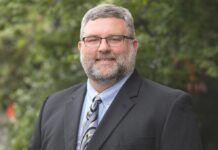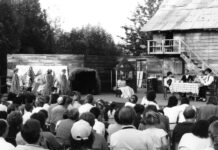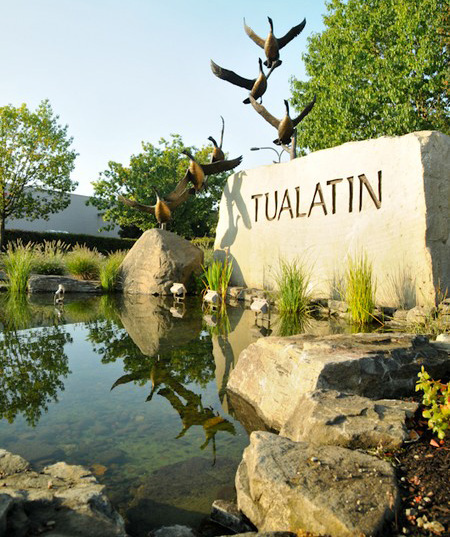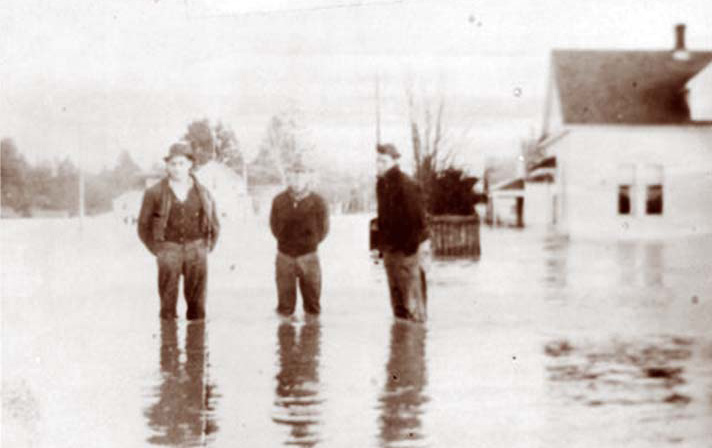The City of Tualatin is aiming for a fall launch of a new equity committee being formed to build community relationships and lower participation barriers for marginalized groups.
Dubbed I.D.E.A., the widely supported Inclusion, Diversity, Equity and Access Committee was approved by City Council in a split 6-1 vote on April 10, after the council failed to pass it unanimously in an earlier session.
“We are seven individuals who collectively make decisions for 27,000 plus residents of Tualatin,” Councilor Christen Sacco, who co-chaired the planning committee, said of the need for an equity group to provide broader perspectives. “We each bring our unique lens to the table. However, it is impossible for the seven of us to provide representation for the entire community.”
The goal is to assemble a group that represents varied races, abilities, ages, and identities and can collectively weigh in for community members whose needs might otherwise remain invisible and overlooked in decision-making. Its 9-13 members will be appointed to three-year terms and include a representative living outside of Tualatin but deeply tied to the community. One youth member will be appointed annually to a shorter 1-year term.
“We want to make sure we’re representing as much of the community as we can in all facets of the community,”
Jerianne Thompson, Tualatin Library and Equity Director, said.
The city is preparing to launch a bilingual outreach campaign across multiple platforms to draw candidates in a process that will look much like the one it employed to attract planning committee applicants last year.
“When we begin the recruitment process, our goal is to reach out to as many people as possible to ensure the committee is diverse and representative of our community,” Thompson said.
Councilor Octavio Gonzalez, the sole dissenter, sparked comments from colleagues and community members when he voted against the committee’s formation in March, questioning the inclusion of a youth representative, a representative living outside the city, and the group’s proposed logo, which spells IDEA in alternating colors used throughout Tigard’s branding.
As the body’s only new member, Gonzalez is also the only Councilor who wasn’t involved in the conversation or vote to create the planning committee, a process that began in 2021.
“I agree with mostly all components of the IDEA committee, I do. There are just components that I still think need to be worked out,” he said, before voting against it a second time.
Among his top concerns is ensuring the committee maintains a balance of diverse representation and doesn’t devolve into a special interest group for any one demographic.
“When do we know we have enough representation of one particular group of people,” he asked. “How do we know we have enough Mexicans on the committee or enough white people or Russians or Ukrainians or LGBT or whoever? Who’s going to be the person who says we have enough representation of this particular group of people?”
Community members and fellow councilors addressed Gonzalez’s comments, speaking to his questions during about an hour of public comment and council conversation before Council approved the measure.
“We all agree that the formation of the IDEA committee is paramount to creating equitable access to services. That can’t happen, however, if the conversation is cut off before it even begins. Shutting down the conversation merely disempowers everyone,” said Tigard librarian Kit Lorelied, noting they were addressing the council not in their official capacity as a city employee but as a Tualatin resident, property owner, community member, parent, and non-binary transgender person.
“If you create unisex bathrooms like the ones in this building for people like me, it also allows the husband who is a caretaker for his wife to do so without embarrassment,” Lorelied said. “When you provide ADA-compliant doorways and aisles, you also make space for a mom to maneuver a stroller.”
Sacco, addressing the value of including a youth representative, said: “Nearly a quarter of our community is comprised of people under 18. There’s a new generation emerging who embrace innovative ideas of how they want to shape their world. They are smart, articulate, and deal with issues we can only hear about second hand.”
Council Maria Reyes spoke to Gonzalez’ fear of imbalanced representation, thanking him for opening the conversation and sharing a story about an earlier attempt at forming a diversity group she was part of around 2015 that ultimately became too narrow and failed.
“We wanted to be diverse and inclusive, but we became exclusive,” she said. It became primarily Spanish speaking. “People felt excluded. They walked out and never came back. That felt like a failure.”
To avoid repeating the mistake, Reyes said, “It took hours and hours of vetting people, talking to people” to choose members of the planning group. Thirty people sought those 13 spots, a larger response than the city typically gets for committee membership.
The city plans on replicating the process outreach and interview process in the upcoming first round of IDEA committee appointments.
“I believe more voices and empowering more voices helps us make better decisions as a council,” said Councilor Bridget Brooks, who proposed the committee in 2021. “It’s not about a number and about tokenism or going okay, were going to have one of this person, one of this person, one of this person.”




















